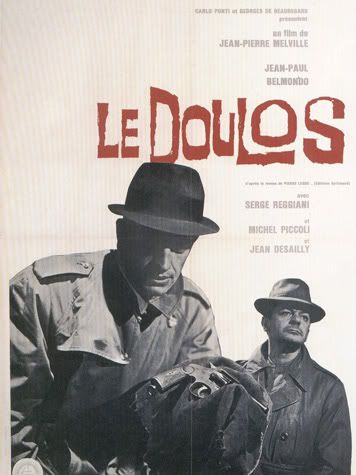I once went to a lecture by the religion scholar Huston Smith, who described his meeting with the Dalai Lama (not the present one). What he found most remarkable about the Dalai Lama, he said, was how unremarkable he was. Here was a man who had been treated literally from the moment of his birth as the supreme leader of Tibetan Buddhism, the latest incarnation of a bodhisattva -- a being who has achieved complete enlightenment but returned to earth life to help others reach enlightenment. What an ego massage! How easily he could have been enraptured by his own persona!
Instead of acting like a spiritual rock star, though, the Dalai Lama behaved with no airs and graces. Quite the role model for a guru. Unfortunately, such self-effacement is rare among the breed.
Guru is a Sanskrit word meaning "one who brings light out of darkness," but it has made its way into English, generally referring to someone who purports to have special wisdom and an inside track on holiness, and who has a group of followers. By that definition, some gurus are downright bad ... or if you prefer, false gurus. See Jones, Jim; Koresh, David.
I've met a few gurus in my time. None were as loathsome as Jones or Koresh, but on the whole I have not been especially impressed with them, and I say that as one who takes the search for God seriously.
In the late '60s in Berkeley, everyone was hunting for a guru -- spiritual, political, or psychedelic, according to the consumer's inclinations. For a time I was in the psychedelic legion, but few gurus were as brilliant as Timothy Leary, including Timothy Leary himself. So I set my sights on finding a spiritual guru.
Eventually I became involved with a group called Ananda Marga, or Path of Bliss, in more or less the Hindu tradition (the most popular option at that time and place). There was a guru, right enough, who led us in meditation and tried to inspire us. A girlfriend persuaded me to go on a three-day "retreat" in Marin County, the last act of which included my being initiated and given my very own mantra. I have never forgotten it, and never used it.
By that time I was having Doubts. I noticed that the Ananda Marga guru was shod in alligator-leather loafers. What's the odds whether your shoes were once worn by a cow or an alligator? But it just felt "off," somehow. Eventually I dropped out of the group, maybe from boredom as much as anything. Later I heard that the alligator-shoe guru had been recalled from his post by the head office in India at the request of the Berkeley adherents ("an extraordinary step for chelas to take in connection with their guru," one of them remarked; I do not know what caused the rebellion). Maybe the shoes were just a focal point for my own intuition, like a mirror or Tarot cards are for some sensitives.
Also in Berkeley in the fantastic and mad '60s, I was told an anecdote by a member of a different group about his guru. In the counterculture Mecca, most males wore all the hair they could generate. They favored tresses like the women in the Breck shampoo ads. So this guru ordered his male followers to go bald.
Naturally, this was quite a blow to the amour propre of some of the spiritual aspirants. The guru, so I was told, chewed them out. "You want the Supreme Prize, the greatest gift attainable in life, Enlightenment, and you won't even cut your hair when your teacher tells you to? You are not serious about the Path!"
That is one way to look at it. Another is that the guru was on a power trip. If so, he was not the first and will not be the last.
According to Anthony Storr, in his book Feet of Clay: Saints, Sinners, and Madmen: A Study of Gurus, most people who become gurus or quasi-gurus are isolated in their younger years; go through a spiritual crisis (which in some cases resembles schizophrenia); and receive a kind of "revelation" or spiritual experience that resolves the crisis. (Storr, by the way, is that rarity: a psychoanalyst with common sense, literary skill, and a healthy skepticism about psychotherapy systems. I've read several of his books with intellectual profit and pleasure.)
What happens after that is crucial. Some develop their experience along humane and God-centered lines. But a lot of them get trapped in psychological inflation and delusion. Storr writes:
Like other humans, gurus risk becoming corrupted by power. Although a guru may begin his mission in ascetic poverty, success often brings about a revision of values. It is intoxicating to be adored, and it often becomes increasingly difficult for the guru not to concur with the beliefs of his disciples about him. If a man comes to believe that he has special insights, and that he has been selected by God to pass on these insights to others, he is likely to conclude that he is entitled to special privileges. For example, he may feel, along with his followers, that he cannot be expected to carry out his exhausting spiritual mission if he has to worry about money, and that he is therefore entitled to demand and make use of any money which his followers can raise. Gurus sometimes end up living in luxury.
That brings me to the final example I will talk about, Bhagwan Shree Rajneesh, also known as Osho. I hasten to add that I was not among the sannyasins, his followers at his commune in Oregon, and I was never in his presence. My experience of him is personal but second-hand. After the break-up of the commune in the mid-1980s, quite a few of his disciples started showing up in Santa Fe, where I was at the time.
One of them was Surya, with whom I had an ambiguous but fairly close relationship for a while. She was a young English woman, an Oxford graduate yet, who had resigned from ordinary life to sit at the feet (metaphorically) of Rajneesh. She was kind and supportive when I had a broken leg that was healing in a cast for months on end and I was feeling rotten.
She and the other veterans continued to style themselves sannyasins, even in exile, but I wasn't inclined to delve into that aspect of her life. I was content just to let things be, perhaps afraid of rejection at a time when I felt needy. But she wanted to talk about Rajneesh more than not, and eventually I let myself be drawn into discussing him.
That was the first time I understood what was meant by the idea that cult members can be "programmed." Surya seemed rational, but her ideas and values struck me as absolute concerning Rajneesh. She had an immediate answer for every question, a counter-argument for any criticism. Granted, we all do that to some extent about our beliefs, but I came to feel in her case it was automatic, almost hypnotic. I don't recall any serious arguments with her (she was beyond argument, if you get my meaning). But it became uncomfortable for me and in the end something I just didn't want to deal with, although I still say that in a caring way. Later I was very briefly involved with another sannyasin (no, I didn't seek them out), and her fixed ideas about Rajneesh were similar.
I can't end this posting without mentioning that I have met one or two spiritual teachers -- I don't know if they considered themselves"gurus" -- who seemed to me genuine, although they were just passing through and our association was brief.
I've never found a guru that I wanted to attach myself to. If I had known Paramahansa Yogananda (founder of the Self-Realization Fellowship) personally, it's possible that I would have become a devotee; I attended the SRF meditation group meetings in Tucson. The closest SRF meeting to where I live now is an hour's drive away, and I suppose that if I were truly committed, I wouldn't count the cost in time and effort. But I'm not, and I do.
I think I've become a little more sophisticated about this guru business. We all have helpers on the higher planes who guide us in every effort we make to grow spiritually, as we stumble along the Path. We may never see them with the eyes of the body, but only through a soul connection. Maybe my guru in bodily form will show up tomorrow, maybe not in this life. I'm not that concerned about it anymore, because the important thing is to remember that this world is not my home, that I am at home only in God's presence, and to try to be a better person than my lower self will settle for.
As the ancient saying goes: "When the student is ready, the Master appears."








